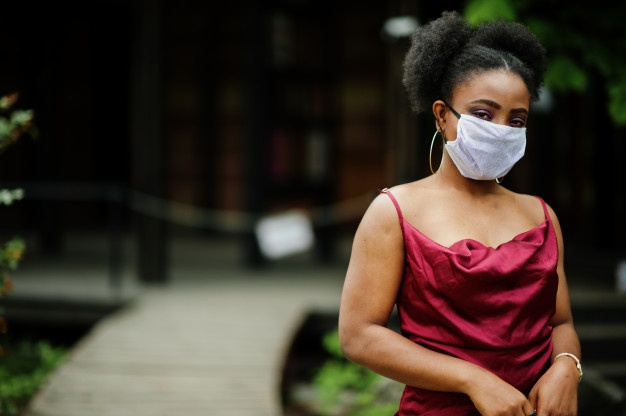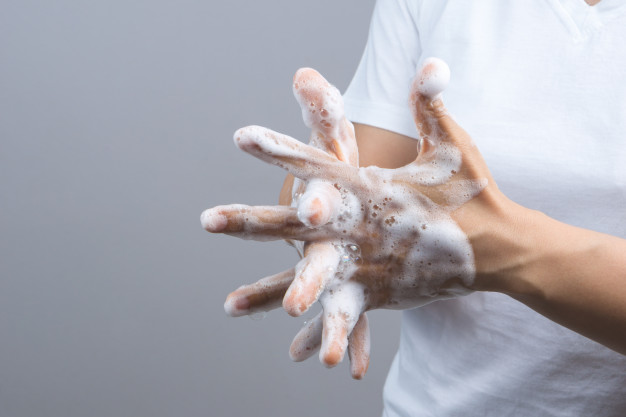Around the world, some of the preventive measures put in place such as the lockdowns are easing up and we are all trying to resume our regular activities. As we embrace our new normal, it Is important to bear in mind that coronavirus has not been eradicated and is still as easily spreadable, so even if you’re only leaving your house a few times each week—whether that’s to go grocery shopping, to take a walk, or to go to work – you could end up being exposed to the virus.
While being extra cautious when you leave your home, you might not be taking proper safety measures inside your home. Defending your home against the virus is another key step in preventing the virus from spreading.
Keep reading for some tips to defend and prepare your home.
Take Extra Precautions When Returning Home
Any household members who have to leave the house for any reason need to take extra precautions when returning home.
If you drive, consider taking a change of shoes and leaving your clean shoes in the car. If you wear gloves, remember to take them off and dispose of them properly before you get inside the house. When you get home from work, head straight to the shower. Wash your clothes with the warmest water you can tolerate if hand washing or at the warmest temperature of using the washing machine. Allow them to dry thoroughly.
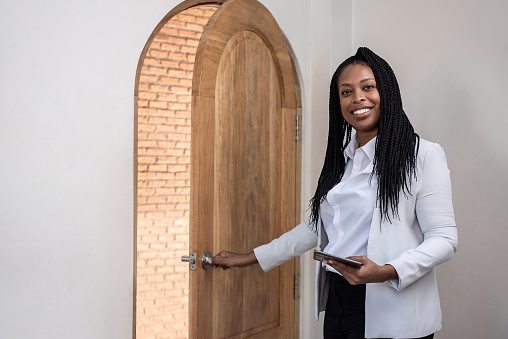
Friendly smiling African American woman real estate agent inside the house
Wipe Down Home Surfaces Daily
Early studies have shown that the virus can live on surfaces anywhere from a couple of hours to a couple of days. So cleaning your home daily is extremely important, as letting even a day pass in between cleaning could allow the coronavirus to infect someone in the house.
Clean surfaces with 25 percent bleach solution (mixing three parts water with one part bleach) for non-wood floors, furniture, painted wood, doorknobs, refrigerator handles, microwave handles, gas cooker knobs, cabinet handles, and knobs. don’t forget to include external doors. Also change your beddings and towels regularly
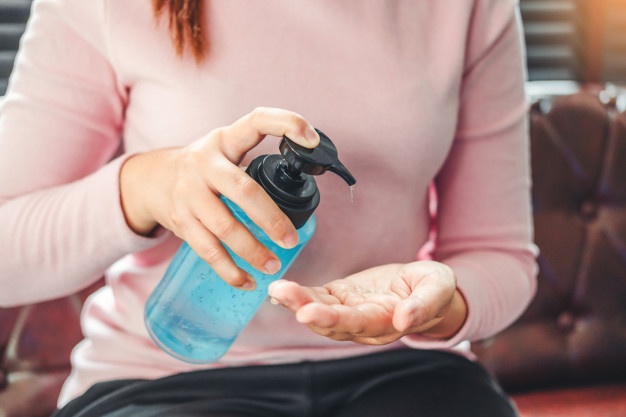
Set Up a Hand Sanitizer Station by Your Front Door
It is recommended to have an alcohol-based hand sanitizer placed somewhere visible by the front door of your home. This acts as an instant reminder that any time someone leaves or enters the house, they should use the hand sanitizer and practice good hygiene.
Avoid sharing things like tubes of toothpaste and jars of body cream.
Unfortunately, most people forget about their dental care products when thinking about coronavirus. Most families or couples share a tube of toothpaste, and normally that would be fine. But during the coronavirus pandemic, It is best that each household member have their own paste, floss, and brush, as viruses can be spread from using the same toothpaste on different brushes. This also applies to everyone dipping their hands into the same jar of body cream/lotion. Also remember to continue to replace your toothbrushes regularly.
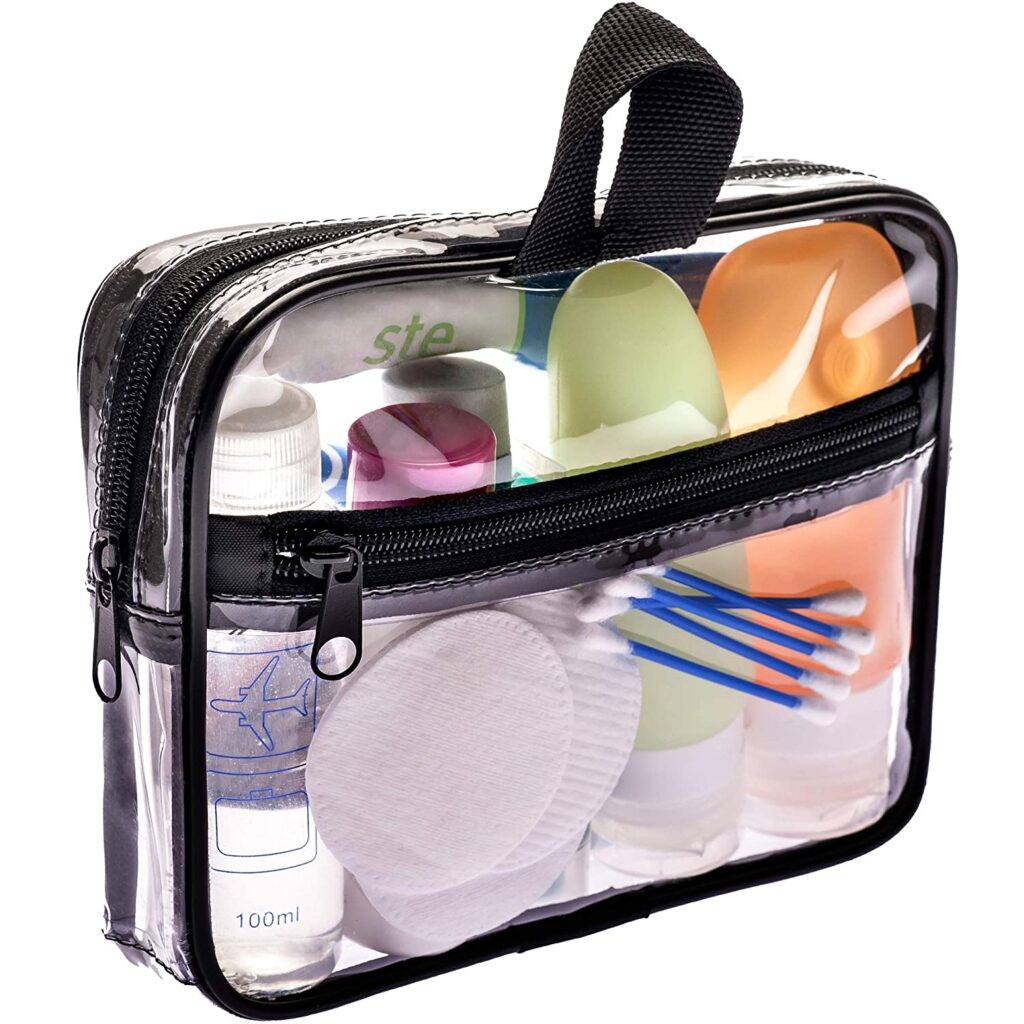
Clean Your Phone Consistently
Most of us have probably been spending even more time on our phones since the lockdown started. It’s also one of the only things you always carry around you, even when you’re outside of the home. That’s why it is recommended that you clean your phone regularly during this time, and that you avoid sharing your device with others in your home.
Before cleaning, turn off your phone, unplug all accessories, and remove its case. Use disinfecting wipes containing 70 percent isopropyl alcohol to get rid of germs that have found their way onto your phone, or use a soft cloth sprayed with disinfectant to wipe down your device. Make your own cleaner by mixing 60 percent water with 40 percent alcohol. Avoid using paper towels or other abrasive materials that may damage your phone.”
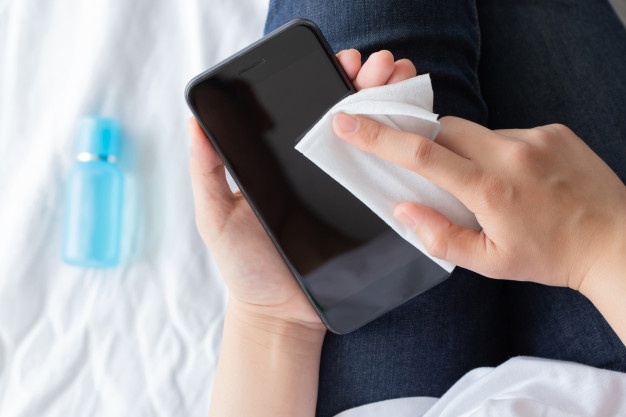
Be Extra Cautious with the Items You Bring Inside
When you go shopping for groceries, consider double bagging groceries so that the contaminated outer bag can be carefully removed and disposed. In addition, you should also wipe down any packages delivered to you when bringing them inside.
Wash Your Hands Thoroughly Throughout the Day
Hand sanitizer, masks, and gloves all work well to help prevent the spread of coronavirus. But the ultimate prevention method remains washing your hands! The Centers for Disease Control and Prevention (CDC) recommends hand washing over anything else, including hand sanitizer. They recommend washing your hands with soap and water for a least 20 seconds several times every day. There is no limit to the number of times you should be washing your hands. Use a moisturizer as well to prevent drying out your hands.
Prepare a Room for Isolation
Unfortunately , all your best efforts at prevention are not enough to fully protect you or every member of your household who is going outside. That’s why it’s also important to prepare for what you’ll do if someone in your home does contract coronavirus.
In case you or a member of the family contracts the virus, there should be a physically limited space where the person will stay in. Given the highly contagious nature of coronavirus, an infected person shouldn’t move around the entire home and spread the virus everywhere. The room should be as empty as possible, so that the virus doesn’t stay on surfaces too long. Also, the room should have a window or a balcony, to ensure that fresh air can easily enter the room.
Have Any Sick Household Members Wear a Mask
Any person positive with COVID-19, or presumed positive, should be wearing a mask in the home—even if they are in an isolated room. This will limit the virus spread by limiting the infected exhalations going into the air. These droplets of saliva with the virus can remain airborne and expose others who are breathing the same air. Masks prevent this aerosol spread of the virus as the infected person breathes.
Designate One Member of the House as a Caregiver
When someone is using the isolation room—whether they’ve tested positive for coronavirus or think they have it—only one person in the house should be allowed to care for the sick family member. This helps reduce the overall exposure of the household. Wearing gloves and face masks if possible, the designated caregiver should maintain good hand hygiene and sanitize surfaces frequently, as well as monitor themselves and other family members for further signs and symptoms of sickness.
Don’t Let Others Inside Your Home
Every new person that steps foot into your home could potentially be bringing the coronavirus with them. limit the house to the smallest social group possible, which will most likely be the nuclear family unit, with parents and children. Anyone who is not staying in the house long-term during this time should not be invited in.

Some of these measures may not be possible to implement for different reasons and that is understandable, however it is necessary to do the best you can to protect yourself, using the materials and resources available to you.






